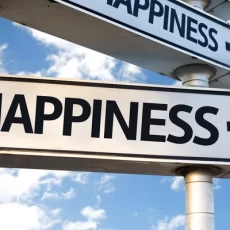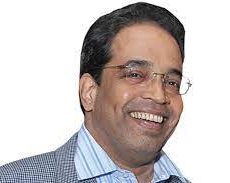In my last article I had touched upon what I was taught by my teacher on the sources of happiness which originate from within us- the three S’s- satsang, sewa and sadhna. The right company, service and state of mind- yes that’s what it translates into. Straightforward, yes, to many. Attainable, yes, to some perhaps. Desirable- perhaps to all.
Satsang – for many of us, the word is not known in its true Hindi meaning, but as a practice which our elders, more so, seniors, perhaps even super seniors, grandparents etc indulged in. They would meet, sing Bhajans, hymns and listen to discourses about the knowledge contained in the scriptures or the religious books of yore. Our involvement at a much younger time would be too either be picking them and dropping them from and to such gatherings, or maybe sometimes indulging them by spending a few minutes exchanging pleasantries with their circle of acquaintances and friends. There has never been enough time to actually be involved in such a gathering. Perhaps some of you may have done more than that only to feel, there could have been better use of time.
The point one misses here is that the gathering is to learn and experience that which our day to day lives do not allow to be fitted into them. So people, even if it was at later stages in life, having realized the futility of chasing fickle sources of happiness, and perhaps having fulfilled their duties of the grihastha ashram, now make time to engage in being in the company of those that enable learning and those that exude positivity. Yes, sat-sang, the company of good people is what matters. Staying away from dead weight is important, else it kills you with its weight. We are humans at the end of the day, and not super human and we connect with the energies of those around us. The more they wallow in their moroseness, the higher our tendency to get sucked in. We should try and help them, but as they say, God helps those who help themselves. One needs to know the limits to which one can help. Not everyone can be the great Gurus who seem to have answers or solutions to almost everything that can trouble mankind.
Yes, helping others in whatever way one can, is important. Sewa that is. We all have our capacity for it, our capabilities for it. I am not a medical doctor, hence there isn’t much I could do in times of the pandemic by helping patients with assistance. But I could help the seniors known to me by running their errands, cooking their meals when their support was unavailable or financially supporting those who couldn’t afford basics of masking and hand hygiene implements, or perhaps just spreading the awareness. Yes, there are several ways in which one can indulge in sewa. It does not have to be the philanthrophic’s way, working with NGOs or CSR teams. It need not even involve money. It just needs to be our time and more than that, our intent of serving, and serving selflessly. Yes, there should not be an expectation of quid pro quo. You do it, because you have the capacity for it, and because it helps someone. May be its your family for whom you cook, clean. Maybe it’s your society for whom you run the show taking charge of whatever it was that fell in no-man’s land. Or maybe it is via mentoring. Several avenues, several opportunities, all for us, only if we have the intent for it. In true sewa lies the bliss of being one with the Supreme. In serving others do we serve that Supreme being, the creator of it all.
And last but not the least- sadhna. Yes, the search for inner peace is a subject that seems to occupy several minds today. Or minds which having attempted and attained what it was they were looking towards externally, and realizing the futility of it all, realize that the answers probably lie within. Several teachers have tried to make the journey less arduous and painful by sharing their experiences of moving from outside to within, but humans as we are, never satisfied unless we have experienced it for ourselves, find ourselves turning to the teacher to help make the journey within easier, smoother, and faster.
The point is that there is no easy way here. There are no formulas. One has to traverse the vast ocean of the self to realize the source. It’s the source from which we have come, its the source which is happiness. It is our spirit, it is that lives always. And that journey to the source, to uplifting the spirit, to me is spirituality. It is what we strive for. It is actually what we are born with. It is what shows in the unexplained smile of an infant all by itself not requiring much to attain happiness. It is where we come from. It’s the journey thereafter that complicates our reasons to smile. A child learns the value of its tears when catered to by the mother in fulfilling what it is that it was wanting. Thus begins the journey of wants. From that state of being where nothing mattered, to where desires and their fulfilment is all that matters.
Being happy is a natural state for us, it is what we are born with. It is unhappiness which we learn. The idea is to unlearn to be unhappy. A big part of the journey of unhappiness residing in our memories of the past and our journey into the unknown future. The regrets of the what-ifs that could have been, occupies mindspace, while the scenario analyses of the future, takes away our peace of mind, leaving very little enthusiasm for the present. But we forget, it’s the present that’s the gift (yes, we have heard that several times, but seldom believed in, or believed enough to convince ourselves to stay in).
Multitudes of techniques and practices have been devised by the wise, are available at our disposal today to learn to live in the present. Yes, having been born in the happy state and learnt to live unhappily, we must train ourselves to revert to the biggest source of happiness- being in the present. It is where we exercise our highest control, it is where we experience the reality. Or perhaps it is where our mind desires to be, it is where desires are fulfilled or perhaps, let’s say, they don’t exist, because that which is fulfilled no longer qualifies as a desire and that which fulfils is what exists in the present.
Its not always possible to stay in good company (satsang). Neither is it always possible to serve selflessly (sewa). Similarly, much as you practice sadhna, to train the mind (and hence the body) it tends to very rapidly descend into its comfort zone, that which regrets, laments, plans and procrastinates. The journey is not an easy one, perhaps a continuous, life long one for many of us. The idea is to be aware that its possible to undertake and to not give up in the pursuit- the pursuit of happiness!



